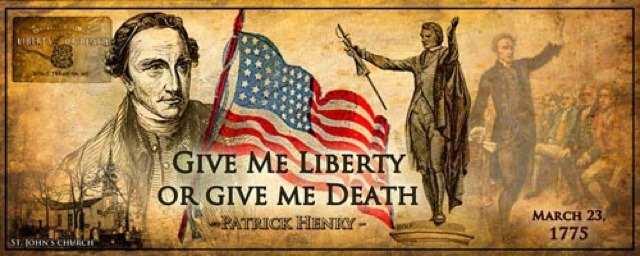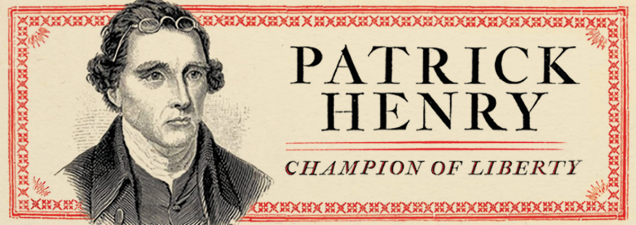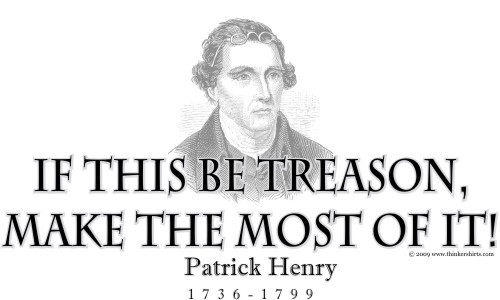Give Me Liberty, Or Give Me Death
Give Me Liberty, Or Give Me Death On March 23, 1775, Patrick Henry gave his famous Give Me Liberty or Give Me Death Speech. In… Read More »Give Me Liberty, Or Give Me Death
Give Me Liberty, Or Give Me Death On March 23, 1775, Patrick Henry gave his famous Give Me Liberty or Give Me Death Speech. In… Read More »Give Me Liberty, Or Give Me Death
Patrick Henry To go with the latest American History post, we have a Patrick Henry biography. Patrick Henry was born on Mary 29, 1736 in… Read More »Patrick Henry
“If This Be Treason, Make the Most of It!” In the midst of the uproar over the Stamp Act, Patrick Henry, newly elected to the… Read More »“If This Be Treason, Make the Most of It!”
Revolutionary War History Intro Our Revolutionary War History logo was designed with the intent to remind people what our founding fathers were willing to sacrifice… Read More »Revolutionary War History



